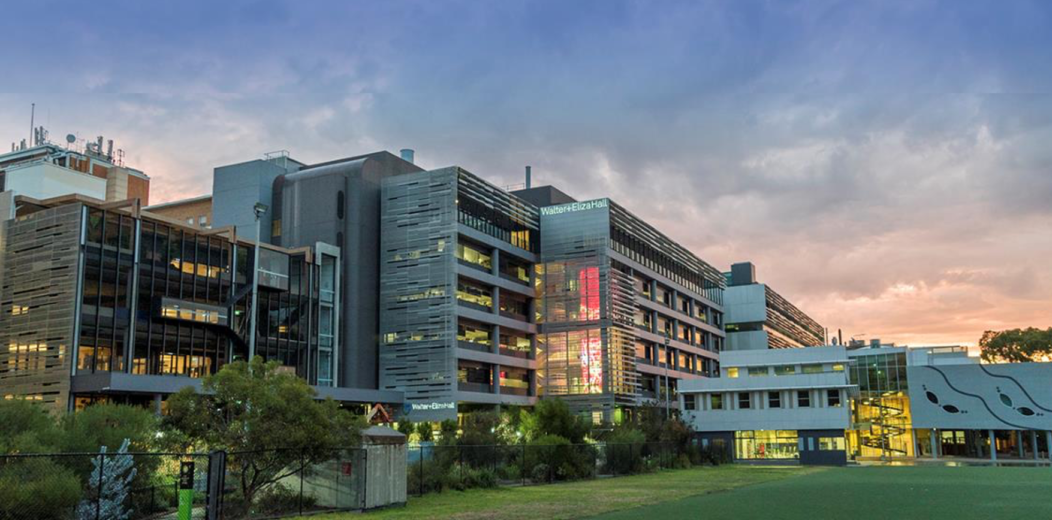The collaboration will initially focus on new treatments for neuroblastoma and prostate cancer.
Australians with metastatic prostate cancer and childhood neuroblastoma will be the first to benefit from a new $15 million frontier technology centre in Melbourne that will focus on the development of next-generation drugs.
The funding for the Australian Centre for Targeted Therapeutics (ACTT) has been provided through the Medical Research Future Fund’s Frontier Health and Medical Research initiative.
The centre, a collaboration between experts from the Walter and Eliza Hall Institute (WEHI), the Children’s Cancer Institute and Monash University will initially focus on new treatments for two cancers: neuroblastoma and prostate cancer.
They plan to develop targeted protein degrader medicines and technology, a powerful new tool for destroying disease-causing proteins that cannot be targeted by conventional drugs.
WEHI’s acting director Professor Alan Cowman said the centre would help kickstart a new biotech industry for Australia, establishing the nation as a leader in this frontier technology.
“Targeted protein degrader technology is one of the most exciting advances in drug discovery and development, with the potential to make a transformative impact,” he said.
“By bringing together a team of leading scientists and clinicians, and establishing a highly skilled workforce, the ACTT will enable Australia to become a major player in this pioneering technology.
“The covid pandemic revealed a vulnerability in Australia due to our lack of sovereign capability in drug discovery and development. The ACTT will help to bridge the critical gap between discovery and translation, a vital investment that will strengthen the nation’s ability to develop innovative drugs against current and future health threats.”
Neuroblastoma is a childhood cancer that claims more lives of children under five than any other cancer. Children diagnosed with neuroblastoma face gruelling treatment, and less than half of those with high-?risk disease will survive.
Children who respond to treatment often face life-long side effects including hearing loss, learning difficulties, heart conditions, growth and hormonal deficiencies, infertility and secondary cancers.
Prostate cancer is the most commonly diagnosed cancer among men, and the second most common cause of cancer death for men in Australia. Current treatments for prostate cancer are invasive and involve significant side effects that greatly affect quality of life, but do not eliminate the cancer.
The five-year survival rate for patients diagnosed with advanced disease is about 30%, with more than 3000 Australian men dying from advanced prostate cancer each year.
The ACTT will take advantage of top Australian cancer experts and research to progress targeted protein degrader treatments for neuroblastoma and prostate cancer towards clinical trials.
Children’s Cancer Institute executive director Professor Michelle Haber said there were extremely limited treatment options for children with aggressive neuroblastoma, with current treatment drugs highly toxic and often ineffective.
“Through this unique collaboration and new technology, we now have a very exciting opportunity to develop a different type of treatment for neuroblastoma – one that works by degrading a specific protein, which our research has shown is key to driving this cancer’s growth,” she said.
“By targeting and degrading this protein in cancer cells, this new treatment will be far less harmful to healthy cells, meaning that more children survive with fewer side-effects.
“For parents of children with aggressive neuroblastoma this offers hope, where previously survival rates for these children have been dismal.”
Although the initial focus of the centre will be cancer, the ACTT platform will broaden the range of proteins that can be targeted by protein degrader technology, with the ultimate goal of addressing currently untreatable inflammatory diseases like ulcerative colitis and Crohn’s disease, and neurological conditions such as Alzheimer’s disease, Huntington’s disease and Parkinson’s disease.
Chief investigators at the Australian Centre for Targeted Therapeutics include Professor John Silke (WEHI), Professor Guillaume Lessene (WEHI), Professor Michelle Haber (Children’s Cancer Institute), Professor David Komander (WEHI), Professor Susan Charman (Monash University), Dr Rebecca Feltham (WEHI), Dr Bernhard Lechtenberg (WEHI).
The chief investigators acknowledge the support and guidance of Professor Mark Dawson (Peter MacCallum Cancer Centre and Centre for Cancer Research, University of Melbourne) in the establishment of the ACTT.
The Medical Research Future Fund’s Frontier Health and Medical Research Initiative is providing $700 million over 10 years to keep Australia at the forefront of medical research globally.
Health Minister Mark Butler said his government was proud to be funding a project that would “put Australia at the forefront of this very promising medical technology”.
“These revolutionary treatments prove once again that Australian medical researchers are among the best in the world,” he said.
“This technology promises cancer treatments that are more effective, with fewer side effects. We are living through a supercharged period of discovery, with new technologies and treatments opening up the possibility of longer, healthier and happier lives.”


